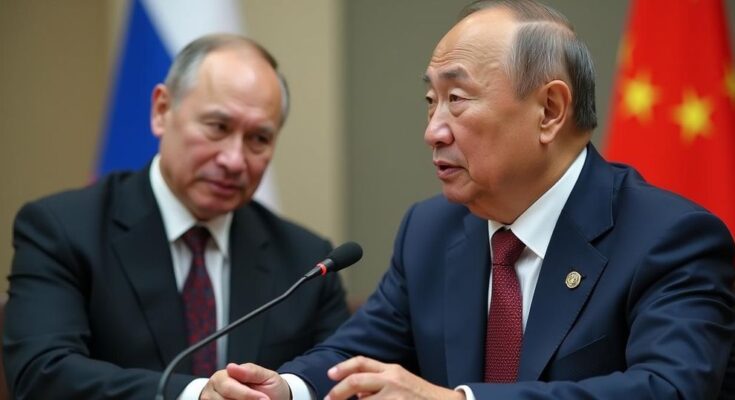Cagayan de Oro Rep. Rufus Rodriguez criticized Russia for blocking an ASEAN draft statement on the South China Sea, asserting that Russia should not interfere in regional matters. He linked Russia’s actions to its alliance with China and indicated a concern over heightened tensions following recent confrontations involving Chinese military tactics against Philippine assets. The lack of a consensus in ASEAN was attributed to external pressures, emphasizing the complexities of geopolitical relations in the region.
In a recent development, Cagayan de Oro 2nd District Representative Rufus Rodriguez has publicly criticized Russia for obstructing a draft statement from the Association of Southeast Asian Nations (ASEAN) concerning the South China Sea. Rodriguez emphasized that Russia’s intervention is unwarranted in the region’s affairs. According to news reports, both Russia and China have blocked an ASEAN statement intended to adopt a firmer position on the code of conduct in the South China Sea, with U.S. officials indicating that the disagreement centered on how ASEAN would reference the United Nations Convention on the Law of the Sea (UNCLOS). Rodriguez stated, “Russia should not have blocked the ASEAN statement. Moscow has no business meddling in disputes in this part of our region.” This obstruction, he suggested, may reflect Russia’s self-interest, tied to its alliance with China, which has been supporting Russia’s military actions in Ukraine. He claimed this is an expression of gratitude from Russia to China, asserting, “It’s an expression of gratitude to Beijing over the latter’s support for the illegal and unjustified ‘military operation’ of Russia in Ukraine, and the continued killing of Ukrainian civilians.” This blockage by Russia and China of a proposed consensus statement by ASEAN member states has raised concerns, as the U.S., Japan, Australia, South Korea, and India had expressed support for it. However, the countries involved have decided against proceeding with the statement, with Russian Foreign Minister Sergei Lavrov citing external pressures from western nations as a reason for the lack of consensus. As tensions in the South China Sea continue to escalate, recent confrontations involving Chinese military actions against Philippine aircraft and vessels have been condemned by Filipino officials, including President Ferdinand Marcos Jr., who has called the actions illegal and aggressive. Diplomats indicate that during ASEAN meetings, President Marcos emphasized that economic cooperation must not ignore underlying political tensions. His words reflect a broader stance against the aggressive maneuvers in the disputed waters, signaling a growing alertness to the regional dynamic amid superpower rivalries.
The South China Sea has long been a disputed territory with China asserting claims over vast areas, which overlap with territorial claims of several ASEAN nations, including the Philippines. The region is of substantial strategic and economic importance, containing vital shipping lanes and potential oil and gas reserves. Recently, tensions have escalated as China has been increasingly assertive in its claims, leading to confrontations with various Southeast Asian nations. The role of external powers such as the United States, Russia, and traditional allies in the region further complicates the situation, as their diplomatic stances and military activities are closely watched and often contested. The ongoing conflict in Ukraine has also had geopolitical ramifications, affecting alliances and interactions within these regional disputes, including Russia’s recent actions in blocking ASEAN statements.
In summary, Representative Rufus Rodriguez’s condemnation of Russia’s interference in ASEAN matters concerning the South China Sea highlights significant geopolitical tensions in the region. The blockade of a consensus statement by Russia and China not only reflects the complex nature of international relations but also underscores the ongoing conflict between superpowers and their influence on regional stability. The situation remains precarious as ASEAN nations navigate these challenges while confronting China’s assertive stance and fostering partnerships with other global powers.
Original Source: www.inquirer.net




